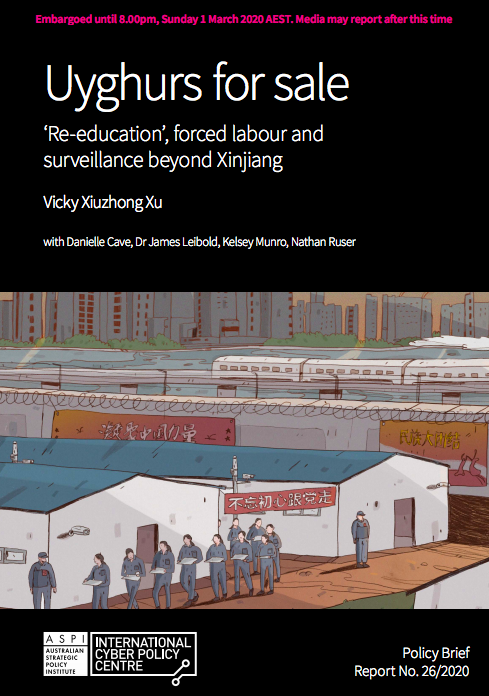The Chinese government has facilitated the mass transfer of Uyghur and other ethnic minority citizens from the far west region of Xinjiang to factories across the country. Under conditions that strongly suggest forced labour, Uyghurs are working in factories that are in the supply chains of at least 83 well-known global brands in the technology, clothing and automotive sectors, including Apple, BMW, Gap, Huawei, Nike, Samsung, Sony and Volkswagen.
This report estimates that more than 80,000 Uyghurs were transferred out of Xinjiang to work in factories across China between 2017 and 2019, and some of them were sent directly from detention camps. The estimated figure is conservative and the actual figure is likely to be far higher. In factories far away from home, they typically live in segregated dormitories, undergo organised Mandarin and ideological training outside working hours, are subject to constant surveillance, and are forbidden from participating in religious observances. Numerous sources, including government documents, show that transferred workers are assigned minders and have limited freedom of movement. China has attracted international condemnation for its network of extrajudicial ‘re-education camps’ in Xinjiang. This report exposes a new phase in China’s social re-engineering campaign targeting minority citizens, revealing new evidence that some factories across China are using forced Uyghur labour under a state-sponsored labour transfer scheme that is tainting the global supply chain.

